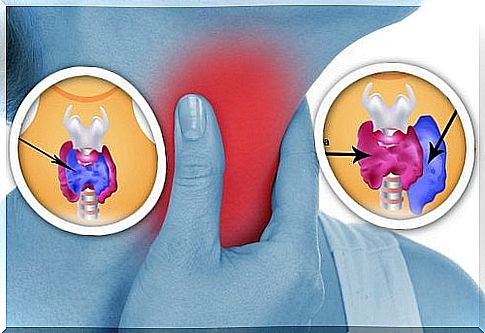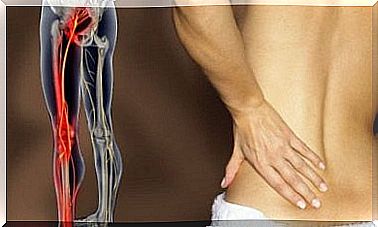8 Household Products That Act On The Thyroid Gland
Both toothpaste and antibacterial agents can contain a substance that is effective against germs, but at the same time can have a harmful effect on the function of the thyroid gland

What works on the thyroid gland ? The thyroid is a small gland that is shaped like a butterfly and is located in the lower part of the neck.
The thyroid produces hormones that are essential for regulating our metabolism.
If the thyroid gland does not work properly, the consequences affect a large number of organs and the quality of life of the person affected decreases due to the symptoms and diseases that occur.
A major cause of thyroid disorders is the buildup of toxins in the body.
While eating a healthy diet can help reduce the effects of these toxins, other bad habits also affect thyroid function and are often neglected.
The use of certain household products is closely related to the increased incidence of thyroid disease, as they contain a variety of chemical substances and poisons.
So if we limit the contact and use of these products, we can also reduce the risk of thyroid problems.
Pesticides harm the thyroid

Various studies have found that people who handle pesticides are at increased risk of developing thyroid disease.
One of these studies also describes that the women of men who regularly work with these chemicals have an increased risk of developing thyroid problems compared to the rest of the female population .
It is also warned that 60% of the pesticides currently in use affect thyroid function. There is no doubt that this assessment applies to all subgroups, for example fungicides, herbicides and insecticides.
Flame retardants
Flame retardant products or polybrominated diphenyl ethers (PBDE) impair the function of the thyroid gland.
Such substances are built into the screens of televisions and computers, in the foam fillings of furniture and carpets.
Furthermore, PBDEs are associated with behavioral and developmental disorders.
Plastics, plastics

Depending on the type, plastic can have different negative effects on our body. The substance antimony, which is released from plastic bottles, is a particular cause for concern .
Scientists from the University of Copenhagen have found anitmon in fruit juices and fruit juice beverages in an amount 2.5 times more than that allowed for drinking water.
It has also been proven that the phthalates contained in plastics have a negative effect on the thyroid gland.
Non-stick coatings
In non-stick coatings, as they are but in the form of Teflon in cooking utensils in food packaging find is perfluorooctanoic acid (PFOA) processed.
This substance affects the functioning of the thyroid gland even when we are exposed to it in small amounts. The use of such products should therefore be avoided.
Toothpaste with triclosan
The toothpaste of some popular brands contains the ingredient triclosan, which not only negatively affects thyroid hormones, but also testosterone and estrogen levels. In addition, interactions with antibiotics are known.
Triclosan interferes with the hormones produced by the thyroid gland and interferes with the healthy development of the reproductive system and metabolism.
Antibacterial cosmetics

There are antibacterial soaps and body creams that also contain triclosan.
Similar to an antibiotic, triclosan prevents germs from multiplying in the mouth, hands, feet and other areas of the body.
While this function is desired, the impairment of hormones produced by the thyroid gland and other organs is not.
(Heavy) metals
Many chemical products that are used in the home contain aluminum or heavy metals such as mercury and lead, which interact with the immune system.
They can cause autoimmune diseases such as Hashimoto’s thyroiditis, a chronic inflammation of the thyroid gland, or Graves’ disease.
soy
Soy contains phytoestrogens, which can inhibit thyroid peroxidase. This enzyme plays an important role in the synthesis of thyroid hormones and is responsible for ensuring that the body incorporates iodine supplied with food into the thyroid hormones.
This process is disturbed under the influence of the phytoestrogens contained in soy.
Another disadvantage of soy is that the soy currently available is usually genetically modified (GMO). The health impact of these changes is not yet fully understood.









